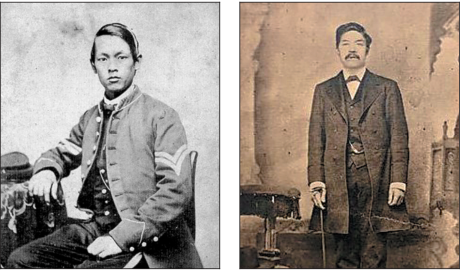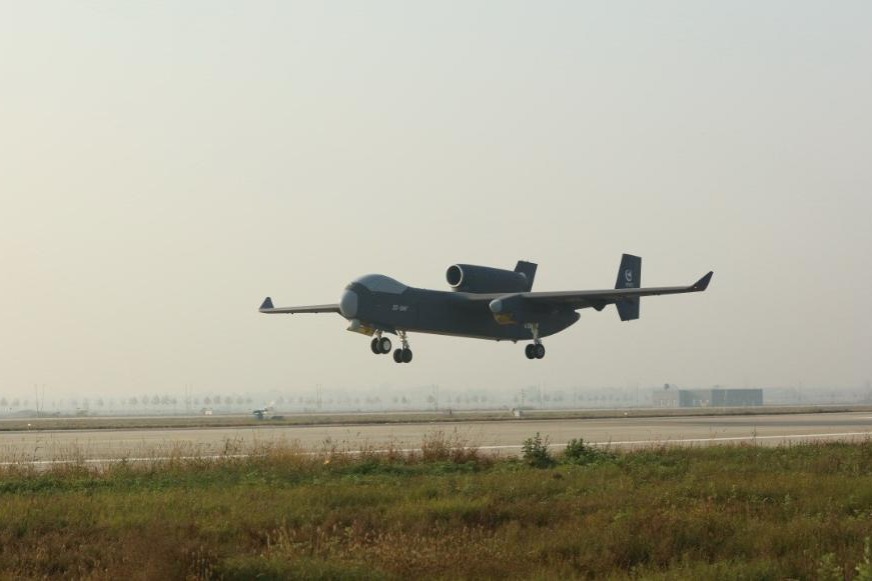Writer sheds light on forgotten history of Chinese Americans in US Civil War

Chinese Americans have a long and varied military history dating back 200 years on US battlefields, working alongside Americans, fearlessly running into the fray as muskets and cannons fired, and some losing their lives.
While the efforts of those who served in World War II are widely known, the stories of the estimated 74 Chinese men who served in the US Civil War tend to have been forgotten.
Writer Ruthanne Lum McCunn from San Francisco, California, has done extensive work for decades to uncover intricate details about the lives of these Chinese Americans.
McCunn of Chinese and Scottish descent told China Daily that the reason that this part of history isn't very widely known is that "American history unfortunately continues to lack diversity or nuance".
The Civil War erupted over a dispute over whether slavery should be permitted to expand into the western territories or stopped from this expansion, which the North feared would lead to the abolition of the heinous trade especially after the election of anti-slavery president Abraham Lincoln.
As the Union (North) fought the Confederacy (South) between 1861 and 1865, around 31 Chinese soldiers fought for the Union Army, 43 were in the US Navy and around five are known to have sympathized with the Confederates, according to McCunn.
Her article Chinese in the Civil War: Ten Who Served, written nearly 30 years ago, provided an update to a widely missed part of this history. She has also written numerous books, including Chinese Yankee: A True Story from the Civil War.
In 1860, the US Census recognized just three races: white, black and mulatto. There was often confusion over how to classify Asian soldiers. It wasn't until 1910 that the census broadened its racial classifications.
Corporal Joseph Pierce of the 14th Connecticut Volunteer Regiment fought and was wounded at Antietam and Gettysburg during Pickett's Charge, ordered by Confederate General Robert E Lee, in an all-white and male unit. He was likely the only Chinese man out of 160,000 men at Gettysburg, John Dynia, a retired US Army colonel and Civil War enthusiast, found. Dynia campaigned to get Pierce's image on the Gettysburg Wall of Faces at the Visitor Center in Gettysburg National Military Park.
Pierce, born in China in May 1842, was farming in Berlin, Connecticut, at the outbreak of the war. He was promoted to corporal in the Army of the Potomac on Nov 1, 1863 — the highest rank for any Chinese American in the Union Army. After the war, Pierce married and had four children. He died in January 1916.
John Tomney arrived in New York after the war began but did not speak English. When he was captured by Confederate troops in March 1862, General John B Magruder, surprised at his appearance and color, asked him if he was a mulatto, Indian, or what. He said he was from China.
Many of the Asian men who enlisted hoped to gain citizenship and acceptance in their new home. However, after the Civil War ended in 1865, many were denied the right to citizenship by the Naturalization Act of 1870 and the Chinese Exclusion Act in 1882. This made it difficult to get a Civil War pension. The Geary Act in 1892 forced Asian service members to apply for citizenship.
Edward Day Cohota, born near Shanghai, was brought from China to Massachusetts as a boy by a sea captain. He did 16 months of service at Cold Harbor, Petersburg, and Appomattox.
Cohota spent 30 years in the Army altogether, escaped death a few times and had seven bullet holes through his clothes. After the war, he became a restaurateur, married and had six children.
When he tried to take up a homestead in 1912, he was notified that "he was not a citizen". Despite years of trying, he never became a US citizen. He died in 1935.
Only a few books such as Arthur Bonner's The Chinese in New York, 1800-1950 ever mentioned these Chinese men's service.
McCunn explains that her love of uncovering and showcasing these veterans' stories is because "we all live in the context of our times. To understand the motivations of people, it's necessary to know the context in which they live. Since the present evolves from the past, we cannot understand our current circumstances without knowing our history, and I mean all of our history."

Today's Top News
- Priorities set for economic work reveal policymakers' confidence, pragmatism
- China holds Central Economic Work Conference to plan for 2026
- World Bank raises China's growth forecasts
- APEC Symposium and Informal Senior Officials' Meeting held in Shenzhen
- World Bank raises China 2025 growth forecast
- Turning export resilience into prosperity






























